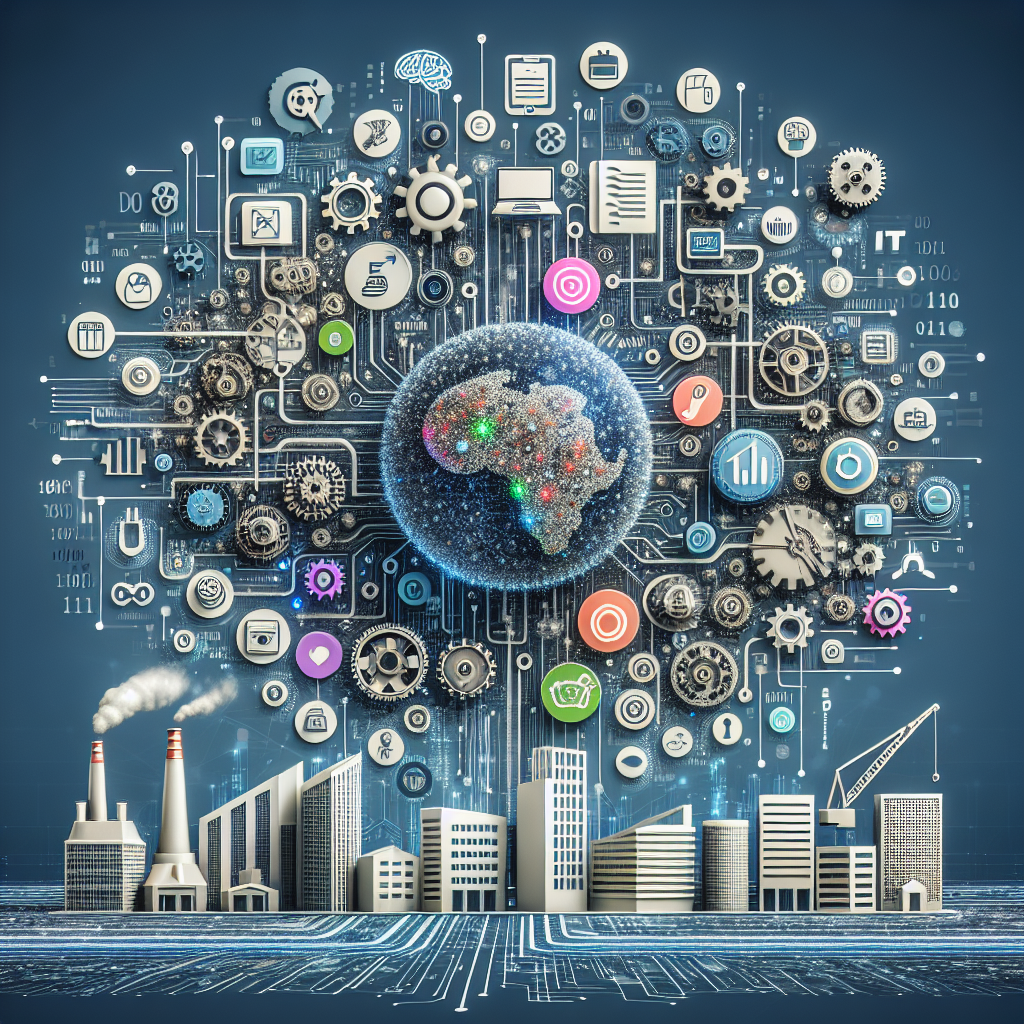Artificial General Intelligence (AGI) is a term that refers to a type of artificial intelligence that possesses the ability to understand, learn, and apply knowledge in a way that is indistinguishable from human intelligence. While narrow AI systems are designed to perform specific tasks, such as image recognition or speech synthesis, AGI aims to replicate the full range of cognitive abilities that humans possess. The development of AGI has the potential to revolutionize the way we work and live, but it also raises important questions about the future of work and the impact it will have on jobs and industries.
In this article, we will explore the potential impact of AGI on the future of work, including how it will affect jobs and industries, and what challenges and opportunities it presents. We will also address some frequently asked questions about AGI and its implications for the workforce.
How AGI Will Impact Jobs and Industries
The development of AGI has the potential to transform virtually every industry and profession, from healthcare and finance to transportation and entertainment. Jobs that involve routine, repetitive tasks are most at risk of being automated by AGI systems, while those that require creativity, critical thinking, and human interaction are likely to be less affected. Here are some ways in which AGI is expected to impact jobs and industries:
Automation of Routine Tasks: One of the most immediate impacts of AGI will be the automation of routine tasks that can be easily performed by AI systems. This includes tasks such as data entry, customer service, and basic accounting. As AGI becomes more advanced, it will be able to take on more complex tasks, such as writing reports, analyzing data, and making decisions.
Increased Efficiency and Productivity: AGI has the potential to significantly increase efficiency and productivity in the workplace by automating time-consuming tasks and streamlining processes. This will allow workers to focus on more strategic, high-level tasks that require human judgment and creativity.
New Job Opportunities: While some jobs may be displaced by AGI, new job opportunities are also likely to emerge as a result of its development. For example, there will be a growing demand for AI engineers, data scientists, and other professionals who can design, develop, and maintain AGI systems. Additionally, industries such as healthcare, education, and cybersecurity are expected to see significant growth as a result of AGI.
Challenges and Opportunities
While the potential benefits of AGI are vast, there are also significant challenges that must be addressed in order to realize its full potential. One of the biggest challenges is ensuring that AGI systems are safe, reliable, and ethical. There are concerns about the potential for AGI to be misused or to inadvertently cause harm, which has led to calls for greater regulation and oversight of its development.
Another challenge is the impact that AGI will have on the workforce. As automation and AI systems continue to advance, there is a growing concern that large numbers of jobs will be displaced, leading to widespread unemployment and economic disruption. It will be important for policymakers, businesses, and workers to work together to mitigate these risks and ensure that the benefits of AGI are shared equitably.
At the same time, AGI also presents a number of opportunities for innovation and growth. By harnessing the power of AI, businesses can develop new products and services, improve customer experiences, and drive efficiency and productivity. AGI has the potential to revolutionize industries such as healthcare, transportation, and manufacturing, leading to new opportunities for growth and development.
FAQs
Q: What is the difference between AGI and narrow AI?
A: AGI refers to artificial intelligence systems that possess the ability to understand, learn, and apply knowledge in a way that is indistinguishable from human intelligence. Narrow AI, on the other hand, is designed to perform specific tasks or functions, such as image recognition or speech synthesis. AGI aims to replicate the full range of cognitive abilities that humans possess, while narrow AI is limited to a specific domain or task.
Q: Will AGI replace all human jobs?
A: While AGI has the potential to automate many routine and repetitive tasks, it is unlikely to completely replace all human jobs. Jobs that require creativity, critical thinking, and human interaction are less likely to be automated by AGI systems. Instead, AGI is likely to augment human capabilities and enable workers to focus on tasks that require human judgment and creativity.
Q: What steps can businesses take to prepare for the impact of AGI on the workforce?
A: Businesses can prepare for the impact of AGI on the workforce by investing in training and upskilling programs for their employees, developing strategies for integrating AI systems into their operations, and reimagining their business models to take advantage of the opportunities presented by AGI. It will be important for businesses to work closely with policymakers, workers, and other stakeholders to ensure a smooth transition to an AI-driven future.
In conclusion, the development of AGI has the potential to revolutionize the way we work and live, but it also raises important questions about the future of work and the impact it will have on jobs and industries. While AGI has the potential to automate many routine tasks and increase efficiency and productivity, it also presents challenges in terms of safety, ethics, and workforce displacement. By addressing these challenges and opportunities, we can harness the power of AGI to create a more innovative, productive, and equitable future for all.

